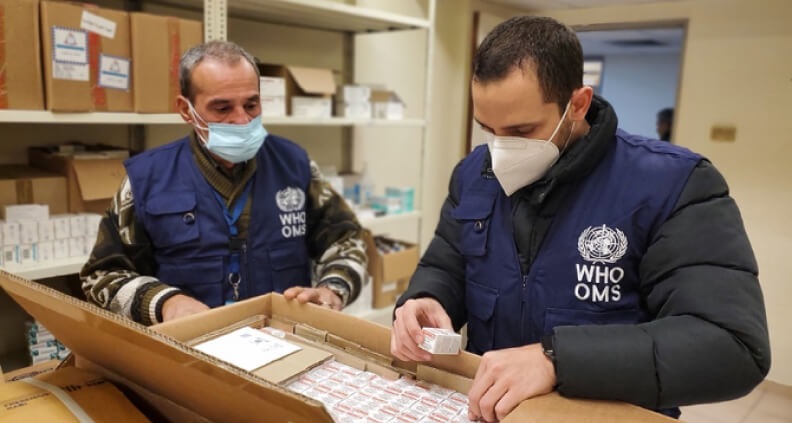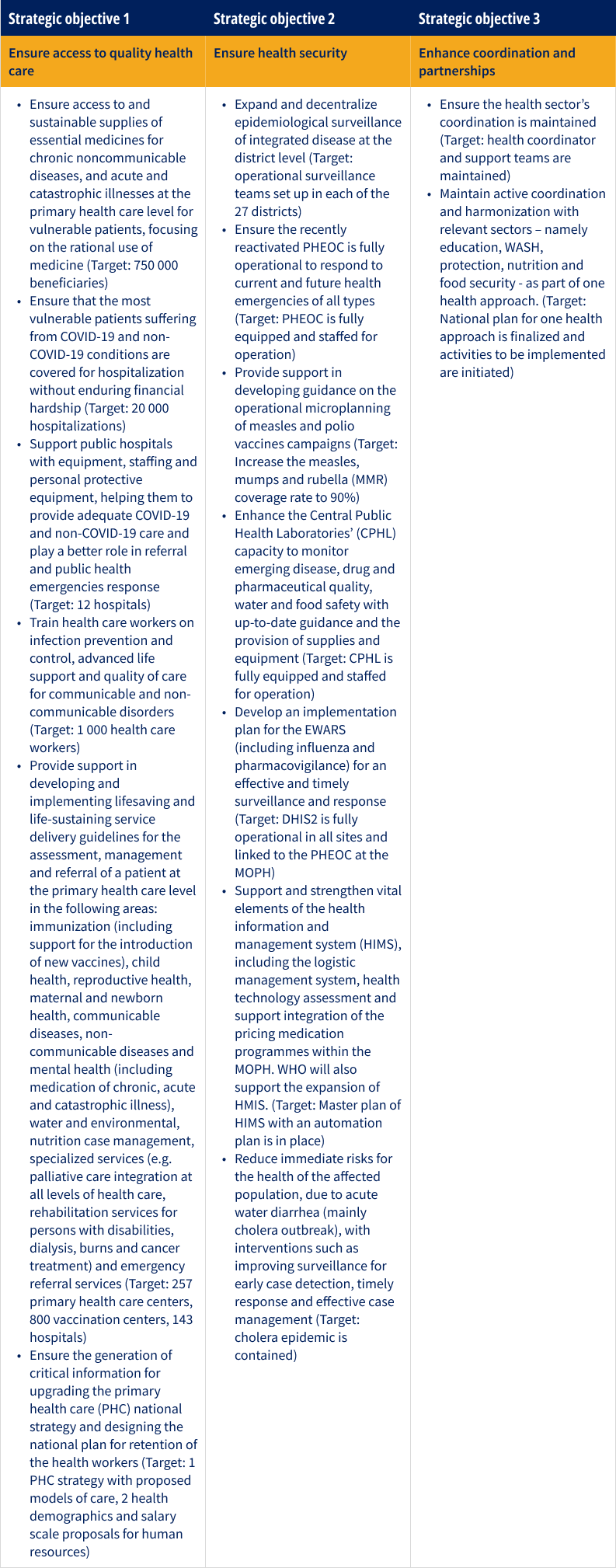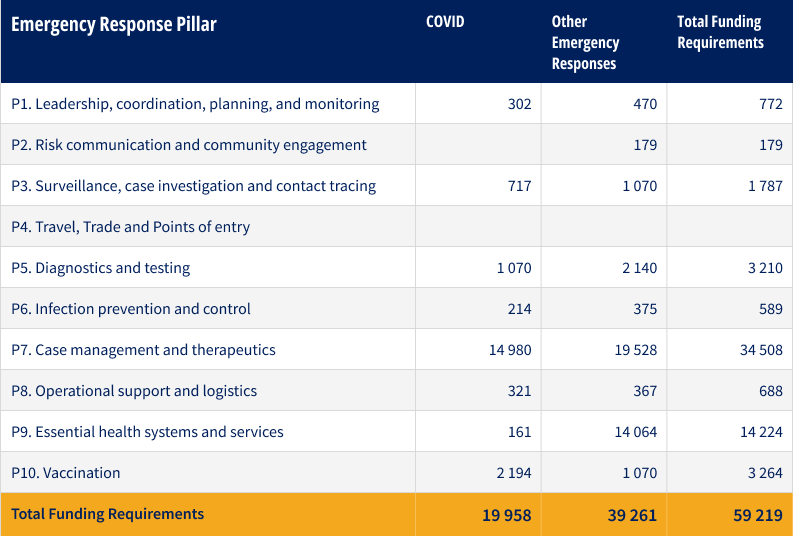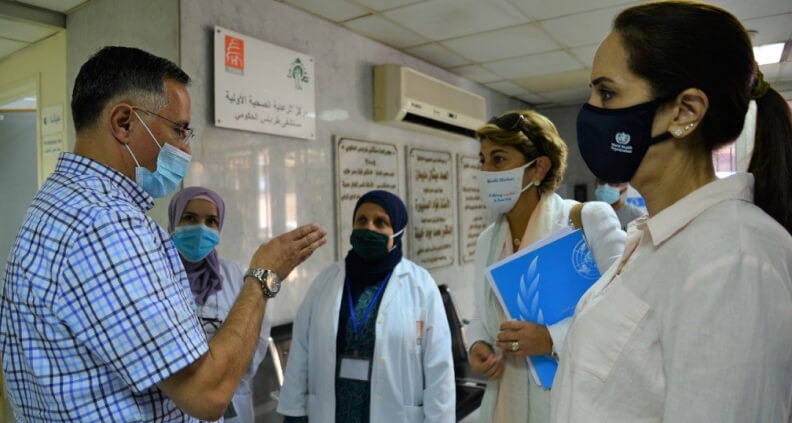
Lebanon
Lebanon
- People in need: 2.3 million1
- People targeted: 1.3 million
- People in need of health assistance: 1.3 million
- Requirements (US$): 59.2 million
Context
Lebanon has seen a series of exceptionally severe and compounded crises over the past two years, including the Beirut port explosion, the COVID-19 pandemic, financial and economic collapse and political gridlock. These have resulted in high inflation, rising unemployment and poverty rates and have seriously affected the operation of public and private institutions.
The severe economic crisis has led to nationwide shortages of fuel, water and electricity, which have greatly impacted all aspects of life and, importantly, the country’s infrastructure. Health, education, water, energy and nutrition sectors have also been impacted. This has also led to repeated outbreaks of water-borne diseases (hepatitis A, cholera).
The crisis has also directly affected all six building blocks of the Lebanese health system: governance, health services, human resources, information systems, medical products and technologies and health financing. Subsequently, a decrease in the availability, affordability, accessibility and quality of health care has been observed. Delays in the population seeking health care have also been noticed, which has resulted in an increase in avoidable medical complications. Overall, the current situation is having a major impact on communities and the population’s health. Gains made in support of the Sustainable Development Goals (SGDs) are also being lost.

WHO supports the primary health care center at Rafik Hariri University Hospital, Beirut, with medication reaching thousand beneficiaries across the country.
Emergency response
WHO aims to follow the Humanitarian-Development-Peace Nexus, supporting alignment of efforts across humanitarian, development and peacebuilding responses. Along with its health partners, WHO will continue to support the ‘health for all’ approach, which aims to strengthen the health system’s sustainability, resilience and development towards universal health coverage (UHC). This approach will place an emphasis on service integration and equitable provision of essential services within the primary health care system. WHO will contribute to the hospital sector with an emphasis on improving the quality and safety, mainly in public hospitals.
Working to strengthen the Ministry of Public Health’s (MoPH) governance capacity, WHO will support the regulation of this sector and ensure essential public health functions with an emphasis on the national sector strategy, plan of action and selected programs. These will include the Expanded Program on Immunization (EPI) and the pharmacovigilance, mental health and HIV/AIDS programs.
In order to protect public safety and ensure the quality of medications circulating in the market, WHO will continue to assist the pharmaceutical sector, with an emphasis on the digitalization and re-establishment of drug quality testing in-country.
WHO will expand surveillance capabilities at the national level to enhance national capabilities to respond to health emergencies and outbreaks. This will include strategic planning, and expansion and digitalization of the Early Warning, Alert and Response System (EWARS). WHO will also ensure the recently reactivated Public Health Emergency Operation Center (PHEOC) is fully operational as a platform for leading and coordinating the health response as part of the national disaster risk management (DRM) efforts, which aim to enhance preparedness for the prevention of disease outbreaks.
In line with the International Health Regulations (IHR) requirements for emergency preparedness and response strategy, the MoPH is re-establishing the Central Public Health Laboratories (CPHL), with a focus on pharmaceuticals, microbiology and water and food safety monitoring.
WHO will also continue to lead and coordinate multiple response plans in collaboration with other sectors, following the ‘one health’ approach and actively participate in UN Country Team, Health Country Team and related coordination groups.
Strategic objectives


Key activities
- Continue to build capacities for early detection (surveillance and laboratory capacity), case management (including hospitalization) and infection prevention and control.
- Support the continuation of essential health services during disease outbreaks, including COVID-19.
- Support the implementation of the EPI strategy to assure the coverage of routine and emerging disease vaccination (such as COVID-19, influenza, cholera and others).
Funding requirements
Overall country funding requirements, including COVID-19, by pillar (US $ '000)


Success stories
Strengthening health in prison during COVID-19 pandemic, so that no one is left behind
Overcrowding and poor hygiene in prisons and detention centers left incarcerated and detained persons disproportionately vulnerable to outbreaks of COVID-19 during the height of the pandemic. To help transform Lebanon’s prison health care system, WHO is collaborating with Roumieh Central Prison to pilot an action plan to limit the impact of the pandemic on inmates, and medical and security staff operating inside central prisons. The program has been funded by the European Union and the Norwegian Embassy in Beirut.
Focusing on prevention, early identification and treatment, the action plan developed by WHO aims to coordinate preparedness and response efforts with Roumieh Central Prison. This will ensure that prisons like Roumieh are able to rapidly respond to COVID-19 cases, preventing the threat of outbreaks posed to the health of the wider inmate and staff population.
As part of the program, a team of 11 nurses, one social worker and three family physicians have been deployed to Roumieh Central Prison. Nurses deployed to the prison have completed a broad education program on preventative measures and have been provided with cloth masks and hygiene materials. Additionally, Internal Security Forces were trained on COVID-19-related protocols. Teams of nurses have assisted the Internal Security Forces with the provision of adequate monitoring and timely referral of cases from two further locations – Zahle and Qobbe Central Prisons. Protocols of care for patients with chronic conditions have also been adapted to the prison’s context to ensure they are able to continue receiving the necessary care. Additionally, infection prevention and control measures have been implemented.
With the support of the International Committee of the Red Cross and WHO, the Dahr El Bachek Government Hospital has also been rehabilitated. This is the closest facility to Roumieh Central Prison and can now admit inmates from the prison's ward to limit the risk of COVID-19 spreading within the prison.
For more information
Dr Abdinasir Abubakar | WHO Representative | WHO Lebanon abubakara@who.int

WHO colleagues visiting the Tripoli Governmental Hospital to meet the hospital team headed by its Director Dr Naser Adra, to discuss current challenges and areas of concern facing the hospital.

